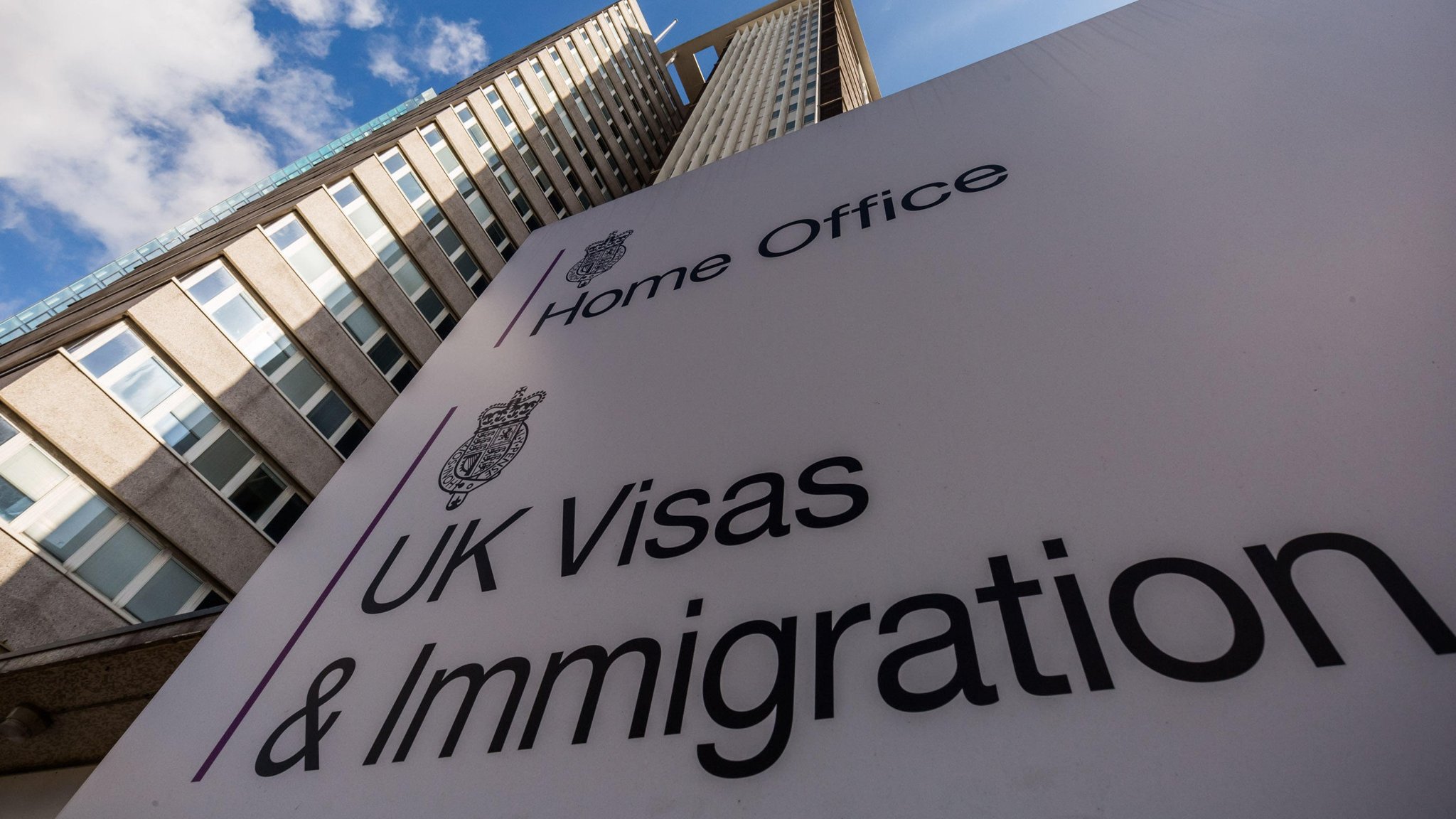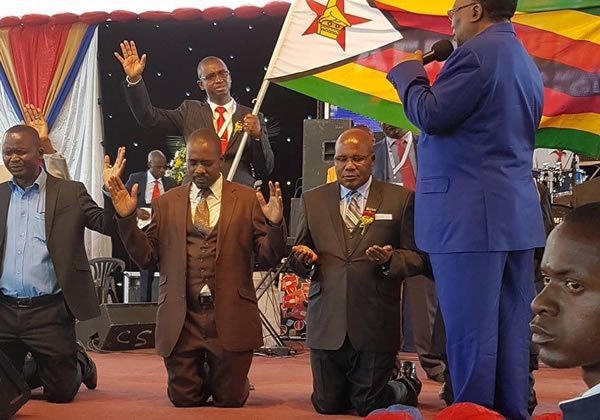Zimbabwe’s Prosecutor-General, Johannes Tomana, is in a spot of bother. On Monday, he was arrested on charges of criminal abuse of office, the alternative charge being obstruction of justice. In the last analysis, we saw how the case against him is rather tenuous and probably more political than legal. In this article, I argue that there exist cases during Tomana’s tenure which provide more suitable grounds for investigating the propriety of his conduct, if the government is really serious about it. The matter involving Charles Nherera, is one such case where the conduct of Tomana raised substantial and grave questions over his fitness to hold such an office.

Nherera case
In 2006, Charles Nherera was convicted of corruption charges and sent to jail to serve a 2 year sentence. At the time of his conviction, Nherera held a high station in society: he was a university professor and founding Vice Chancellor of the Chinhoyi University of Technology (CUT). He was also the board chairman of ZUPCO, a state-owned public transport company. He was released in 2008, on completion of his sentence.
However, in an astonishing and unbelievable turn of events, Nherera won an appeal against his conviction in 2009. This came after the Attorney-General, Tomana, inexplicably and astoundingly decided that he was not going to oppose the appeal. This meant, in effect that Nherera’s conviction was only formally quashed by the court, but, in reality, was overturned by the decision of the new Attorney-General not to oppose the appeal against a conviction won by a previous Attorney General.
It is the circumstances around this case and the involvement of the current Prosecutor-General, Johannes Tomana, which form the subject of this piece.
Nherera’s arrest and conviction
In 2005, Nherera was accused by Jayesh Shah, of soliciting for a bribe in a transaction involving ZUPCO and Gift Investments, a company owned by Shah. The transaction involved the purchase of a fleet of mini-buses by ZUPCO from Gift Investments. Shah had recorded Nherera demanding a bribe totalling $85,000 in order to facilitate the transaction.
Shah reported the matter to the ZUPCO board, chaired by Nherera. Tomana was also a member of the ZUPCO board. At the time, Tomana was also the deputy chairman of the Anti-Corruption Commission. Given his legal background, Tomana would have been responsible for providing legal advice to the ZUPCO board. One might have expected the ZUPCO board to carry out a forensic investigation to the allegations, but surprisingly, the board did nothing. For his part, Tomana, as deputy chairman of the Anti-Corruption Commission did nothing to raise a red flag on this matter involving a public institution.
Shah took the matter to the police and soon Nherera was arrested and prosecuted. At trial, one of his chief defence witnesses was Tomana, who averred that Nherera had no case to answer. In lay terms, he was on Nherera’s side during trial. The court was not impressed by his evidence. Nherera was duly convicted and sentenced to 2 years in jail.
Meanwhile, in 2005, Tomana’s law firm had represented Nherera, in a case where he was demanding defamation damages from Shah based on the corruption allegations that Shah had levelled against him in the ZUPCO matter.
It is plain from this brief narrative that Tomana and Nherera were closely linked:
- they were both board members of ZUPCO, the same board that had refrained from taking action against Nherera after the bribery allegations,
- Tomana had acted as a defence witness in Nherera’s corruption trial and
- Tomana was Nherera’s legal representative in a case against Shah, who had made the corruption allegations.
How Nherera got away
After Nherera’s conviction and imprisonment, he made frantic attempts to regain liberty, but he was unsuccessful, the courts finding there were very little prospects of appeal. On all occasions, the State, through the Attorney General’s office, vigorously opposed Nherera’s applications. I must reiterate that during this time, the Attorney General was Sobusa Gula-Ndebele.
The situation however changed after 2008, when Sobusa Gula-Ndebele was fired as Attorney-General. The man who replaced him was Tomana. From this point onwards, Nherera’s case took a different turn.
In November 2009, Nherera’s appeal against conviction was successful. However, the manner by which success was achieved was highly unusual and suspect. Nherera’s appeal succeeded not because a court of appeal upheld it on the merits, but simply because the new Attorney General chose not to contest it. The High Court which was due to hear the appeal had no choice after the Attorney-General consented to the appeal. In other words, the Attorney General’s office which had prosecuted the case and secured a conviction in 2006, and had vigorously resisted attempts by Nherera to gain liberty, had now incredibly, turned around to concede to the appeal. The Attorney General’s office had performed an unimaginable somersault.
What had changed to cause the Attorney General’s office to make such a drastic change from defending a conviction it had fought hard to win, to conceding it so readily?
The only major change was that in Tomana, there was now a new Attorney General. This was the same man who had defended Nherera as his defence witness at the trial. He was also the same man who was Nherera’s fellow board member and boss at ZUPCO and indeed, the same man who was Nherera’s lawyer when suing the person who brought those allegations in the first place. In other words, the man who had defended Nherera against the corruption allegations was now the same man who had to decide whether or not to oppose the appeal. It is plain that Tomana was conflicted and it’s hardly surprising that he chose to concede to Nherera’s appeal, thereby depriving the State of a conviction that it had painstakingly achieved.
Conflicts of interest
It is not hard for any reasonable person presented with these facts to form a suspicion that the incredible concession by the Tomana was improper and inappropriate. These sentiments were echoed by Justice Nicholas Mathonsi, a High Court judge who wrote in relation to these events,
“The concession [by the Attorney General] came as a surprise because the prosecution had, prior to that, strenuously opposed the appeal on the basis that it was devoid of any merit. The prosecution successfully argued that point before the trial magistrate when bail pending appeal was sought. It also succeeded before the High Court when bail was launched. An effort by plaintiff at the Supreme Court was also successfully repelled by the prosecution.”
The best course that Tomana should have taken, given his obvious conflict of interest, was to recuse himself from the Nherera case. Tomana clearly had an interest in the Nherera appeal, having been a defence witness and a board member of ZUPCO and his lawyer. The laws of criminal procedure provide a facility for such recusal by the Attorney General, but Tomana ignored it. Justice Mathonsi was not impressed by this conduct as he stated, “Now as the Attorney-General [Tomana] his office was tasked to defend the interest of the State and protect a conviction the State had fought tooth and nail to accomplish. It [Justice] cannot be seen to be done in the circumstances under which the appeal was conceded.”
Here, we have a High Court judge basically rebuking Tomana for his conduct in the handling of the Nherera matter. Tomana had been on one side, then moved to the other side, and ignored the fact that he was conflicted. It is plain that the judge did not trust the quashing of the conviction.
After this miraculous and strange victory basically handed to him on a silver platter by Tomana, Nherera decided to sue Shah, this time for malicious prosecution, arrest and detention. He was demanding damages to the tune of $400,000. This is the matter that came before Justice Mathonsi and earned Tomana a strong rebuke.
Describing Nherera’s incredulous escape from conviction, Shah’s lawyer, Advocate Lewis Uriri said he had been “crucified and resurrected by the same office” – referring to how the Attorney General has let him go after initially securing a conviction and sending him to jail. Judge Mathonsi agreed that there was something seriously wrong with the manner in which the Attorney General’s office had handled the case.
Tomana’s handling of the Nherera matter is a classic case of conflicts of interest taught in legal ethics classes. Here is a public official who was a defence witness for a man who gets convicted, and then found himself on the other side, having to make an important decision in the same case. In conceding Nherera’s appeal when he became Attorney-General, Tomana achieved what he was pining for when he was a defence witness on behalf of Nherera. He had no business getting involved in the Nherera matter given his personal history and involvement in the proceedings.
When Justice Manthonsi delivered his judgment last November, which was a scathing indictment on Tomana, one would have expected Government to have taken measures, including at the very least an investigation into what had happened in the Nherera case. However, nothing happened. No-one in government was moved. It was business as usual. The irony is that Tomana is now in trouble for what is really a fanciful matter, when in fact, matters like the handling of the Nherera case provide more substantive and reasonable grounds upon which to investigate the propriety of his conduct.
If ever the President will suspend the Tomana and appoint a special tribunal to investigate his conduct, it would be ludicrous if cases like the Nherera matter are not part of the tribunal’s remit.
Wamagaisa
Not to be reproduced without permission wamagaisa@gmail.com






